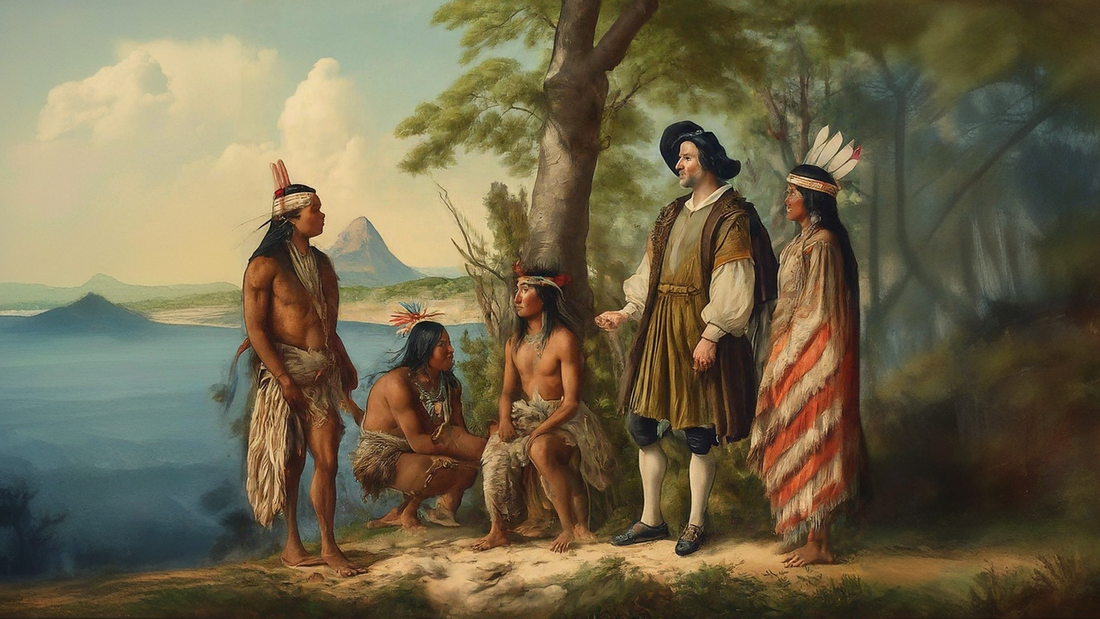
Columbus Day, or Indigenous Peoples’ Day? A Look at Its History, Controversy, and Modern Meaning
A Holiday Between Glory and Guilt
Every second Monday in October, the United States pauses. Some offices close. Parades wave Italian flags. And many Americans ask: what are we truly celebrating?
For decades, the answer was clear—at least in textbooks: we were celebrating Christopher Columbus, the daring Genoese navigator who “discovered” a continent in 1492. A symbol of European audacity and the American dream in its infancy. But like all good stories, this one had a darker side—hidden between ships and imperial chronicles: conquest, slavery, extermination. The epic became an epitaph.
A Hero Made to Fit
Columbus Day became a federal holiday in 1937, during a time when the U.S. was seeking national myths to unite its young and complex society. For Italian-Americans, Columbus was more than an explorer—he was a symbolic ticket to integration in a country that often viewed them with suspicion. Elevating Columbus was a way of elevating themselves.
Year after year, the parades continued: marching bands, political speeches, children in tri-corner hats. The tale of fearless discovery was told again and again. But while we celebrated the man who "connected two worlds," we silenced the voices of those who already inhabited one of them.
The Discomforting Turn: History Told by the Survivors
By the 1990s, the narrative began to shift. History—once selective and sanitized—started to listen to new voices: Indigenous peoples who didn’t celebrate discovery but mourned catastrophe. Thus emerged Indigenous Peoples’ Day, a counter-holiday that doesn’t deny history but refuses to romanticize its violence.
This creates a striking contrast: while some raise glasses to the navigator, others remember the epidemics, amputations, and forced conversions that followed. Celebrating Columbus can feel like toasting champagne on a gravestone.
States of Change
States like California, South Dakota, and others have made the switch—replacing statues of Columbus with ceremonies, native art, and ancestral languages. In place of paper-mâché caravels, there are workshops and reflection. Where once stood monuments, now stands memory.

So, What Are We Celebrating?
The paradox remains. Columbus Day is still a federal holiday. Cities like New York and San Francisco proudly hold Italian-American parades. Elsewhere, the day has been renamed, reframed, and reclaimed as a mirror of a nation reckoning with its complex past.
This isn’t about political correctness or passing trends—it’s about evolving historical awareness. Because celebrating without context is like cheering for fireworks without asking what had to burn to make them shine.
Patriotism—with Memory
To many, Columbus represents boldness—the human drive to cross frontiers. To others, he marks the beginning of genocide. Perhaps both are true. Like the ocean he crossed, history isn’t smooth or shallow. It’s full of hidden currents and submerged truths.
Embracing that complexity doesn’t weaken us as a nation. It deepens our humanity. Real maturity means holding contradictions, and facing our past with clarity, not nostalgia.
Where Do We Go from Here?
Columbus Day is no longer just about Columbus. It’s about how we choose to tell our story—and who gets to tell it.
Perhaps the future doesn’t lie in abolishing one holiday or another, but in merging them. Not to balance pain with pride, but to acknowledge that every nation carries both. True remembrance lies in not forgetting anyone.
Thanks for reading this far. If this article made you think, smile, or see the world in a different light, share it with someone else—you know, that person you always end up talking to about everything and nothing. Just use the buttons.
Your gesture, no matter how small, helps more ideas travel, intersect, and maybe even make you uncomfortable (for the better).
And if you're left wanting more, check out our blog. There are other stories waiting to surprise you.


















